Calendar of events, awards and opportunities
Every week, we update this list with new meetings, awards, scholarships and events to help you advance your career. If you’d like us to feature something that you’re offering to the bioscience community, email us with the subject line “For calendar.” ASBMB members’ offerings take priority, and we do not promote products/services. Learn how to advertise in ASBMB Today.
Sept. 13: Re-examining your mentoring relationship
Christine Pfund of the University of Wisconsin-Madison and Ruth Gotian of Weill Cornell Medicine will be featured in this webinar hosted by the National Research Mentoring Network. If you want to do a little homework beforehand, NRMN offered these two articles: "Six mentoring tips as we enter year two of COVID" and "Reassess–realign–reimagine: A guide for mentors pivoting to remote research mentoring." Register for the event here.

Important 2022 ASBMB Annual Meeting deadlines
The ASBMB annual meeting will be held in person in Philadelphia in April. Here are the deadlines you need to know.
Registration
- Sept. 15: Early registration (largest discount) begins
- Feb. 7: Early registration ends
- Feb. 8: Advance registration (smaller but still significant discount) begins
- March 18: Advance registration ends
- March 19: Regular registration begins
Abstracts
- Sept. 15: Regular submissions begin
- Oct. 15: Deadline for ASBMB’s fast-track program (guaranteed a decision within two weeks)
- Nov. 30: Regular submissions end
- Dec. 15: Last-chance submissions begin
- Jan. 27: Last-chance submissions end
Travel awards
- Sept. 15: Applications now accepted
- Dec. 7: Deadline for applications
Sept. 16: Applying to grad school
The American Society for Cell Biology is hosting a free webinar on Sept. 16 for undergraduates interested in pursuing postbaccalaureate training and graduate-level degrees. Learn best practices and pitfalls to avoid — and come with qustions! See the speakers and register.
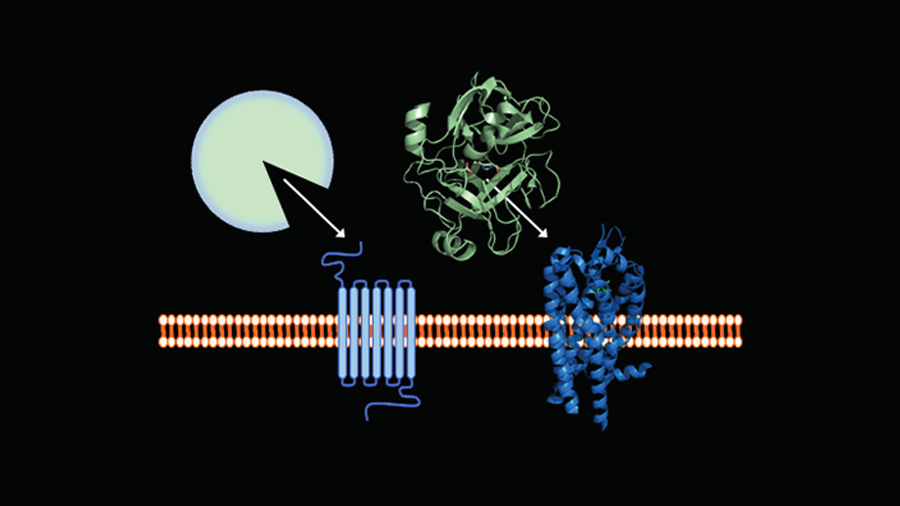
Sept. 17: New abstract deadline for serine proteases meeting
The virtual meeting Serine Proteases in Pericellular Proteolysis and Signaling continues the tradition of the ASBMB special symposium on membrane-anchored serine proteases with an expanded focus on other related proteases with overlapping substrates and functions in the pericellular environment.
The conference brings together the leading national and international researchers in the field of pericellular proteolysis and provides them with a forum to present their latest findings, exchange ideas and technologies, and network to form collaborations. Equally important, it also provides a venue for junior investigators at the graduate student and postdoctoral level to discuss their current research, meet with experts in the field and forge new scientific interactions crucial for their future career development.
Sept. 17: Free immunotherapy symposium by MIT
The Massachusetts Institute of Technology's Koch Institute for Integrative Cancer Research is hosting a virtual symposium on cancer immunotherapy Sept. 17. Here's an excerpt from the event website: "While checkpoint blockade therapy has demonstrated that the immune system can be harnessed to fight cancer, the next generation of treatments will require us to understand what causes resistance in nonresponders, how this can be overcome, and how these issues are best addressed clinically. Discussing these questions will be at the core of this symposium as we move toward our ultimate goal to increase the number of patients benefiting from immunotherapy." Register.
Sept. 19: Scholarship for disabled students and researchers
The International Alliance for Ability in Science is accepting applications for its scholarships for STEM students and researchers with disabilities. One $1,000 award and two $500 awards are issued each semester. The alliance also has a $500 scholarship for those who use service animals. The deadline to apply is Sept. 19. Read the critieria.
Seminar series on gene function across organisms
The Genetics Society of America is hosting a free series of seminars through November exploring gene function across humans and model organisms. GSA's president, Hugo Bellen, explained the impetus for this series in an op-ed in May. He wrote, in part, "We believe that these seminars will be useful to investigators at all career stages and across different model organisms, as well as for human biologists. We hope this will add a new dimension to research, reveal unanticipated phenotypes, speed up discovery, allow new funding opportunities, and lead to the discovery of new fundamental aspects of biology." Below is the schedule of seminars. See the speakers and register here.
Sept. 20 — Mining model organism data in the Alliance of Genome Resources Portal
Oct. 4 — Monarch Initiative: Cross-species phenotype comparison for disease diagnosis and discovery
Nov. 1 — Unraveling the links between hereditary and viral microcephaly
Sept. 23–24: AAAS advocacy workshop
The American Association for the Advancement of Science is hosting a free two-day virtual workshop for students and postdocs titled "Catalyzing Advocacy in Science and Engineering" Sept. 23–24. You need not have advocacy training or experience to participate. It'll introduce you to the federal policymaking process and help you become an advocate for federal funding for basic science. Learn more and register.
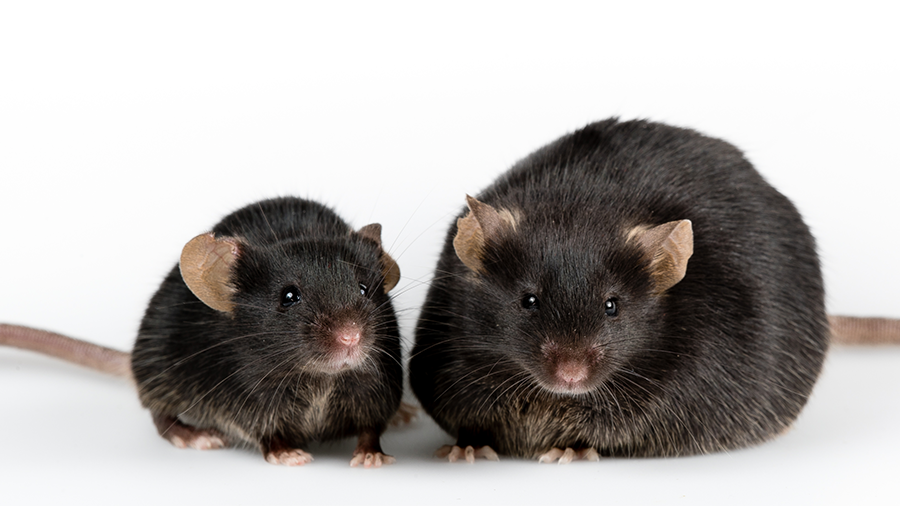
Sept. 24: Complete survey about mouse diets
The American Society for Nutrition has an eight-question survey that could be of interest to some of our members. Here's how ASN described the effort: "Updates of the AIN-93 reference diets for rodents must be based on robust scientific evidence. We need experts in the field to contribute to this effort by advising us of research that reports data indicative of potential inadequacies in the composition of the diets. Please participate by addressing the questions in the survey and also submitting your summaries, reference list, and/or other considerations in the space provided at the end of the survey." Take the survey.
Sept. 30: Take 15 minutes to transform STEM learning
100Kin10 is looking for young people, ages 13-29, to share their experiences about pre-K-12 STEM learning for a new national effort called the unCommission. This work will uplift stories of STEM learning — both the joyful moments and the challenges — to help our country's decisionmakers better understand how the pre-K-12 STEM experience needs to change to better serve all students. 100Kin10 is especially interested in hearing from Black, Latinx, Native American and other communities often excluded from STEM, including white and Asian youth in high poverty and rural schools, students with disabilities, those who identify as LGBTQ+ and girls. Share your story here by submitting a quick video, audio recording, or written reflection. Sharing your experience will take no more than 15 minutes and requires no preparation, but it will have the potential to transform STEM learning. Plus, storytellers will be entered into a raffle to win a prize. Learn more.
Sept. 30: NIH Stadtman applications due
Stadtman investigators at the National Institutes of Health hold tenure-track positions in the agency's intramural research program. The program website says it encourages applications from doctoral-level researchers in any field relevant to the NIH mission. See how to apply.

Save the date: ASBMB Deuel Conference on Lipids
The ASBMB Deuel conference is a must-attend event for leading lipids investigators — and for scientists who’ve just begun to explore the role of lipids in their research programs. This event will bring together a diverse array of people — including those who have not attended Deuel or perhaps any lipid meeting before.
The meeting will be held March 1–4 in Monterey, Calif.
“We'd love to bring in people who might not have cut their teeth in the lipid metabolism field but have found their way to studying lipids. In many cases, that's where you get the most exciting, unusual and off-the-wall presentations, and that can spark collaborations that may have otherwise not have happened,” explains co-organizer Russell DeBose-Boyd.
This year's theme is "Location, location, location: How lipid trafficking impacts cell signaling and metabolism."
Co-organizer Arun Radhakrishnan explains it this way: “In recent years, we have begun to gain deep insights into the mechanisms of lipid trafficking. We thought it would be great to have a meeting focusing on that aspect and what those what these new insights are telling us about cell signaling and metabolism.”
Abstracts will be accepted starting Sept. 1. See the program and learn more.
Oct. 1: Immunology essay contest deadline
Michelson Philanthropies and Science/AAAS have a new prize for researchers (35 years old and under) doing "transformative research in human immunology, with trans-disease applications to accelerate vaccine and immunotherapeutic discovery." To apply, write a 1,000-word essay about your work. The winning essay will be published in Science, and the writer will get $30,000. Learn more.
Oct. 4: Civic engagement grant deadline
We're quoting from an email we received: "Research!America is excited to announce applications are open for the Civic Engagement Microgrant Program, now in its fourth year. Microgrants of up to $4,000 will be awarded to graduate student- and postdoc-led groups in the STEM and social sciences to design projects that create dialogue with public officials, local community leaders and the public around issues of common concern. The funds provide opportunities for grantees to develop skills in communication and program planning, along with an understanding of policy and government in order to have an impact in their local areas." Learn more and apply by Oct. 4.
Oct. 4: NAS award nominations due
The National Academy of Sciences is accepting nominations for its annual awards. The nominations are due in October, winners will be announced in January, and the ceremony will be held in April. See the list of available awards. Read the nominating instructions.
Oct. 5: Gender diversity forum
The National Institutes of Health Office of Research on Women's Health is hosting a virtual forum on Oct. 5 to recognize institutions that have won the NIH Prize for Enhancing Faculty Gender Diversity in Biomedical and Behavioral Science. Here's how they describe it: "The forum will present the winners' effective, evidence-based practices and feature four panels exploring challenges and discussing ways to improve the existing career paradigm ... All prize recipients and honorable mentions have substantially contributed to systemic change aimed at addressing gender diversity and equity issues among faculty members within their institutions' biomedical and behavioral science departments." Register for the event.
Oct. 6: DOE internship applications due
The U.S. Department of Energy is accepting applications through Oct. 6 from undergraduate students and new grads interested in interning at one of the agency's 17 participating labs in the spring. Participants conduct research under the supervision of DOE researchers and engineers in support of the agency's mission. Learn more.
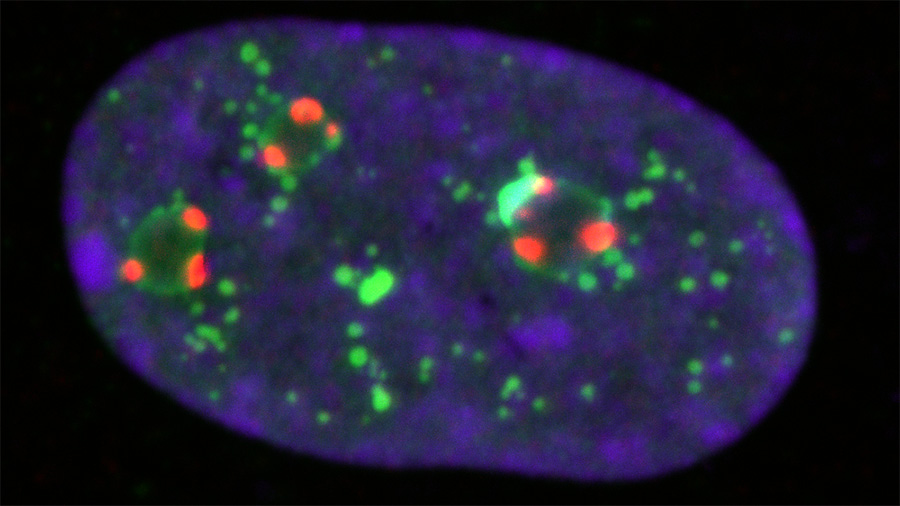
Oct. 6–9: Emerging roles of the nucleolus
This unique meeting will bring together scientists who focus on nucleolar structure and function, but with diverse research perspectives and approaches, to facilitate a wide-ranging discussion and an in-depth exploration of the subject from many angles. The topics addressed will range in scope from basic biology to human disease, including the biophysical properties of this organelle, cancer prognosis and treatments, and reproduction. Learn more.
Oct. 14: Becoming a science influencer
The American Association for Anatomy is offering a free webinar titled "The Power of Suggestion: How to Get and Gain Influence" on Oct. 14. Learn how to use story formulas and other techniques to increase your influence, how to measure the effects of your work, and how to set up a promotional campaign to advance your career. Learn more and register.
Oct. 24–29: SACNAS National Diversity in STEM Conference
The Society for Advancement of Chicanos/Hispanics and Native Americans in Science will hold its national meeting Oct. 25–29 online. Registration opens Aug. 2, and SACNAS members get discounts. See what's on the agenda.
Oct. 30: Apply for PALM fellowship
The Promoting Active Learning and Mentoring (PALM) Network is accepting applications from postdocs and faculty members who wish to learn about and get better at implementing evidence-based active learning. This program is supported by the National Science Foundation. During the COVID-19 pandemic, fellows and mentors will participate virtually. Learn more.
Dec. 1: Deadline for HHMI Hanna H. Gray Fellows Program
The Howard Hughes Medical Institute is accepting applications from underrepresented scientists for its Hanna H. Gray Fellows Program. Up to 25 fellows will win grants for postdoctoral training and will be eligible for continued funding as they begin their independent careers. Learn about eligibility and application materials.
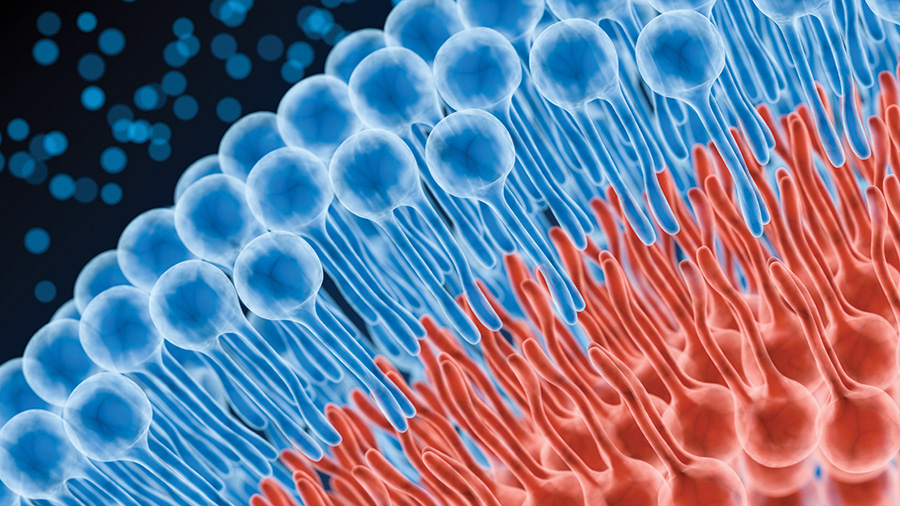
Who among you loves tweeting about lipids?
The ASBMB's Journal of Lipid Research invites graduate students, postdocs and early-career investigators to take over the JLR Twitter account (@jlipidres) for a day apiece to talk about their favorite lipids. To express interest, fill out the JLR #LipidTakeover application. Also, the ASBMB Lipid Research Division just started its own Twitter feed. Check it out at @AsbmbLrd.
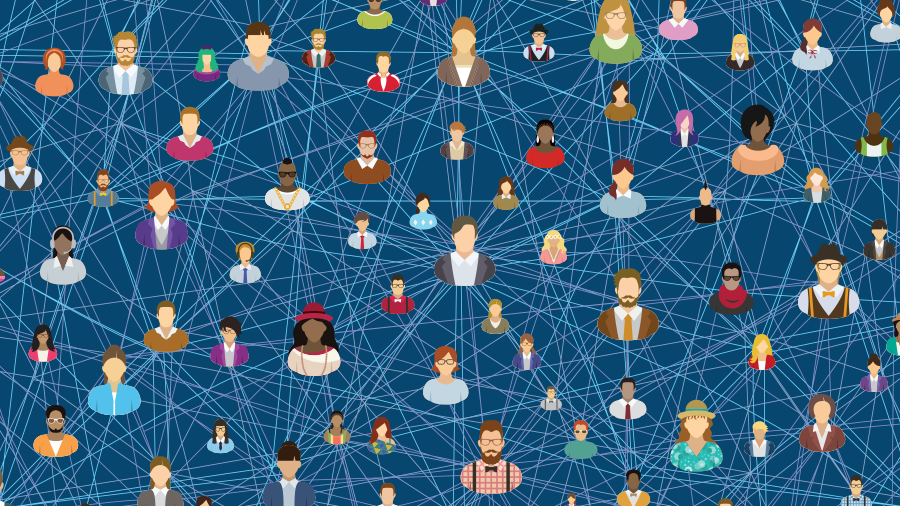
Call for virtual scientific event proposals
The ASBMB provides members with a virtual platform to share scientific research and accomplishments and to discuss emerging topics and technologies with the BMB community.
The ASBMB will manage the technical aspects, market the event to tens of thousands of contacts and present the digital event live to a remote audience. Additional tools such as polling, Q&A, breakout rooms and post event Twitter chats may be used to facilitate maximum engagement.
Seminars are typically one to two hours long. A workshop or conference might be longer and even span several days.
Prospective organizers may submit proposals at any time. Decisions are usually made within four to six weeks.
Enjoy reading ASBMB Today?
Become a member to receive the print edition four times a year and the digital edition monthly.
Learn moreFeatured jobs
from the ASBMB career center
Get the latest from ASBMB Today
Enter your email address, and we’ll send you a weekly email with recent articles, interviews and more.
Latest in Careers
Careers highlights or most popular articles

From humble beginnings to unlocking lysosomal secrets
Monther Abu–Remaileh will receive the ASBMB’s 2026 Walter A. Shaw Young Investigator Award in Lipid Research at the ASBMB Annual Meeting, March 7-10 in Washington, D.C.

Chemistry meets biology to thwart parasites
Margaret Phillips will receive the Alice and C. C. Wang Award in Molecular Parasitology at the ASBMB Annual Meeting, March 7-10 in Washington, D.C.

Decoding how bacteria flip host’s molecular switches
Kim Orth will receive the Earl and Thressa Stadtman Distinguished Scientists Award at the ASBMB Annual Meeting, March 7–10, just outside of Washington, D.C.

Defining JNKs: Targets for drug discovery
Roger Davis will receive the Bert and Natalie Vallee Award in Biomedical Science at the ASBMB Annual Meeting, March 7–10, just outside of Washington, D.C.

Upcoming opportunities
No matter where you are in your career and what future path you aspire to, everyone needs leadership skills. Join ASBMB for practical strategies for building and practicing leadership skills.

Close out ASBMB 2026 with a bang
The closing reception of the 2026 ASBMB Annual Meeting will be held at the Torpedo Factory Art Center in Alexandra, Virginia.
